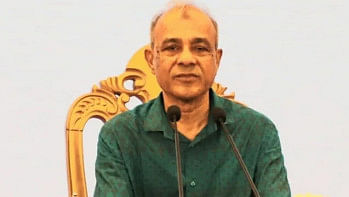Cast adrift or ashore
THE city corporation polls have left some carbon footprints. The first among them was the attempted vote buying behind the scenes. This allegedly was done in two ways: Cash passing hands and the glitzy postering far beyond the campaign spending ceiling of Tk 15 lakh per candidate.
Overall, crores of takas were said to have flashed through the various channels set up by candidates for mayoral elections and the contestants for the 116 ward councilors' posts.
The high visibility of MPs and ministers in the constituencies worked against the interest of the candidates backed by them. The central leadership of the BNP on the other hand had their focus on the Election Commission in Dhaka.
The second print on the sand is the verifiable information that 57 out of 116 elected ward councilors have or had charges of murder, attempt-to-murder, extortion, terror activity and illegal possession of arms. Even though the councilors under clouds claim that the cases were 'politically motivated', the local people tend to typify them as 'dangerous'. Here is the question -- if they were so scary and notorious why should they have been voted in? Why, in the first place, were they not screened out is a fundamental question meriting an answer. Actually, it underscores a long pending reform agenda calling for built-in, enforceable safeguards against intrusions by even suspectedly dishonest and ill-reputed candidates into the electoral system.
The third footprint allegedly concerns unilaterally making capital out of a religious sentiment of the people by playing the so-called 'atheist' card. The contending forces were said to have been unprepared to effectively face the propaganda. There is also a contradiction in this: It is difficult to imagine how a literate electorate at the city level would have been influenced by such a dubious tactic.
Reading too much into the four city corporation elections has become a national obsession or pastime, if you like. The overreaction has taken on melodramatic proportions. Emotions running high, the line between fiction and facts has gotten blurred.
The poll results held no surprises if you look at the trend of the ruling party's declining showing in some of the corporation or municipal elections -- Chittagong, Comilla, Narayanganj -- preceding the 'string of pearls' lost by the incumbents in Sylhet, Khulna, Rajshahi and Barisal to the BNP-backed candidates.
During the BNP rule too, its candidates lost city corporation elections in Dhaka and Chittagong. Thus the pendulum of electoral fortunes has swung in a cyclical order. Anti-incumbency sets in right after a party's first year in power. This has happened with both the BNP and the AL. Even when each ascended to power on a headwind of electoral pledges and high aspirational note, the honeymoon period did not even last beyond 100 days, let alone a year. The self-seeking got to work in monopolising power and pelf and nibbling a slice of the pie in everything that jingled with coins and largesse. The people neither drew up any charter nor demanded its fulfillment -- a complete lack of answerability or a recall option there.
In a context where ruling and the opposition parties have been utterly non-cooperative and swearing by destruction of each other, the local government elections have passed for a barometer to gauge inter se popularity between the contending political parties. When the opposition by turn aimed to topple the government or demand snap polls, they tasted milk in the whey of local government polls.
Even though local government elections are not fought on party tickets, these are becoming partisan contests de facto and as such claimed by the opposition to be a measuring rod of falling popularity of the incumbent. Local factors are supposed to predominate in the local polls; somehow dominant national issues are permeating all administrative or self-government (!) tiers to affect the voters' mood, one way or the other.
There's thus a case for allowing local government elections to be fought on party tickets on a formalised basis. That will open a vast terrain for participation of political parties in the local government frays in an open and declared fashion. This will preclude the possibility of neither here nor there approach to important sets of elections which now theoretically are regarded as a cornerstone of a truly participatory democracy, bottom upwards. In practice though, these are subordinated to the central authority.
Even if the results in the local polls and those of the national election might be at variance with each other it would be a value-addition to democracy in terms of working a bipartisan balanced representative system of benevolent governance in place of an imposing majoritarian variety.
The writer is Associate Editor, The Daily star.
E-mail: [email protected]


 For all latest news, follow The Daily Star's Google News channel.
For all latest news, follow The Daily Star's Google News channel. 



Comments